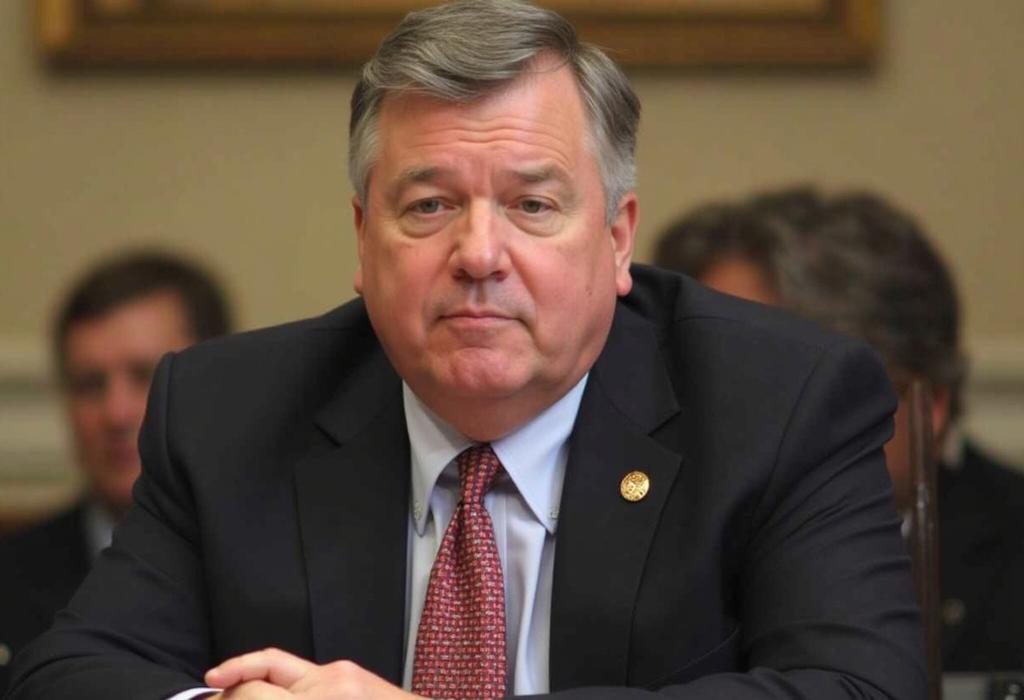Ed Martin, currently the acting U.S. attorney for the District of Columbia, is facing significant hurdles in his bid for confirmation as U.S. Attorney. This situation unfolded as Senate Judiciary Committee Republicans opted not to include Martin's nomination in their upcoming meeting agenda, with the looming deadline of May 20. Senator Thom Tillis (R-N.C.) has publicly declared his disapproval, primarily due to Martin's controversial involvement with January 6 defendants and his ties to fringe political narratives that many associate with far-right extremism.
Martin, who has a history of politically charged actions—including advocating for Trump’s unfounded claims regarding the 2020 election—has seen a significant decline in support, reflective of a GOP increasingly divided over how to approach Trump-era appointments. His previous roles have been marked by controversies including his resignation as chief of staff for Missouri Governor Matt Blunt amid a scandal involving transparency issues, as well as a lackluster performance in various political races throughout his career. Furthermore, his vocal defense of January 6 defendants has drawn backlash not just from Democrats, but from certain Republicans who view his actions as too extreme for the U.S. attorney role in a city deeply scarred by the Capitol riot.
The Senate Judiciary Committee's unwillingness to advance his nomination, combined with the high-profile support from Trump, illustrates the complex dynamics at play in the current Republican leadership. While Trump’s endorsement suggests that Martin could be an ally in future political endeavors, his controversial past looms large, leading to skepticism from even some Republican senators.
Martin has previously signed letters affirming unfounded claims about misconduct within the Biden administration while overseeing significant policy shifts in the D.C. attorney’s office. This has raised questions about his qualifications and priorities, which Democrats point to as reasons to scrutinize his nomination stringently. His challenge appears to be not only navigating a confirmation process but overcoming a legacy of accusations that have tainted his reputation. Given the political landscape, Martin's nomination serves as a critical test for Trump's enduring influence over the Republican Party, particularly how far the party is willing to support figures closely tied to the January 6 incident.
Whether Martin is ultimately confirmed or not, this episode is emblematic of the broader struggles the Republican Party faces as it attempts to reconcile loyalty to Trump with the practicalities of governance and public perception in a highly polarized political environment.
AD
AD
AD
AD
Bias Analysis
Bias Score:
75/100
Neutral
Biased
This news has been analyzed from 22 different sources.
Bias Assessment: The coverage demonstrates a moderate to high level of bias, primarily reflecting an opinionated stance against Ed Martin, with references to his past actions and controversies without providing equal space for counterarguments or defenses from his supporters. Sources used able to reflect significant critical inquiry into Martin's actions, leading to a potentially negative portrayal that aligns with a more liberal perspective against Trump-era political appointments.
Key Questions About This Article




